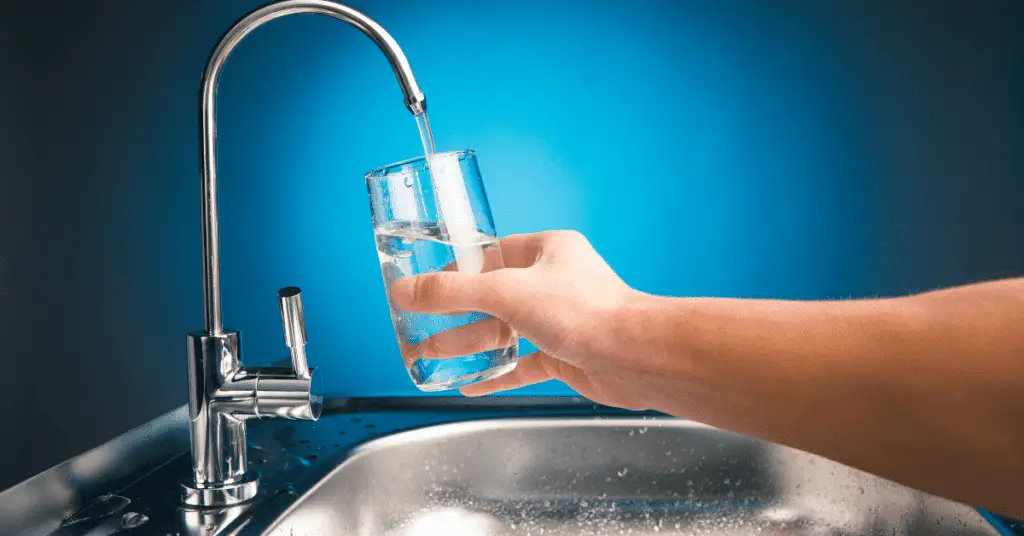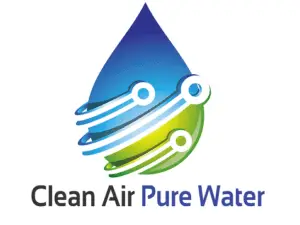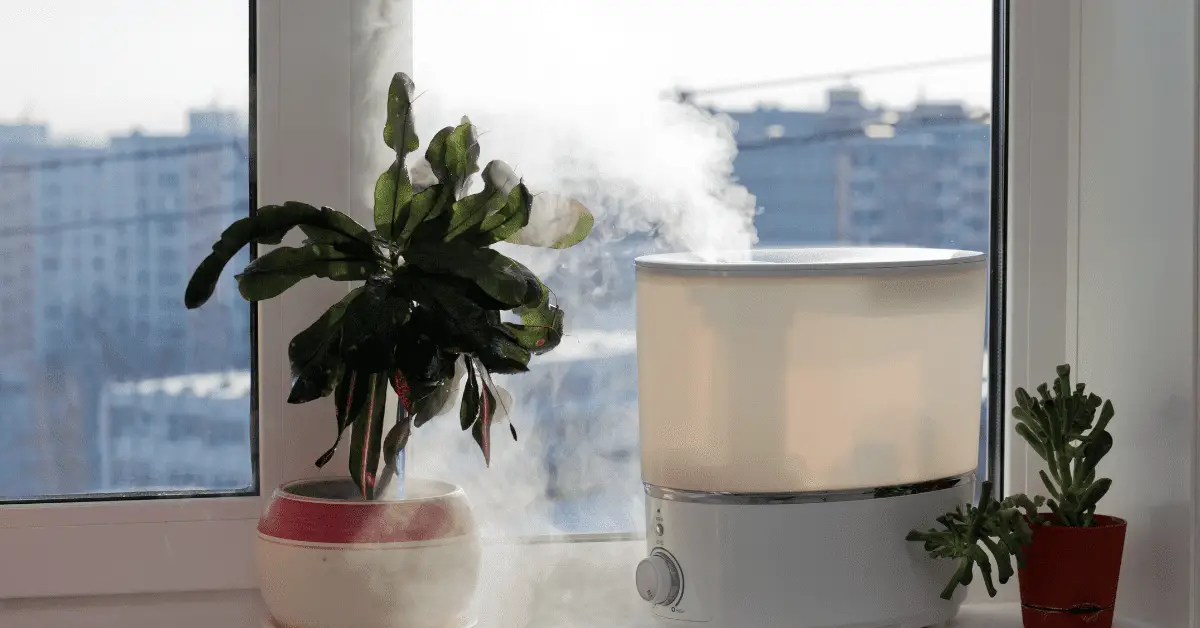Dry air can cause dry, cracked skin and lips, sinus issues, and nosebleeds. Humidifiers are commonly used in residential settings to add moisture to the air and resolve dry-air discomforts. However, if they’re misused or not adequately maintained, humidifiers can cause more problems.
Humidifiers need to be used with distilled water because:
- Humidifier use with distilled water reduces minerals in the air.
- Humidifier use with distilled waterprevents white dust.
- Humidifier use with distilled waterprevents mineral buildup and bacteria in the air.
- Tap water is risky for some populations.
- Humidifier use with distilled water prevents damage to the humidifier.
The rest of this article will explain a few topics related to this question in more detail, including how humidifiers work, why you need to use distilled water, and other cleaning and maintenance best practices. Let’s take a closer look at why you need distilled water for your humidifier.
How Does a Humidifier Work?
Humidifiers work by releasing water vapor (or steam) into the air to increase the humidity or moisture level in the air. They can either use electricity to make steam, ultrasonic vibration to release a cool mist, blow air through a wet filter, or produce mist using a rotating disk.
Regardless of the method, all humidifiers use water in a machine and turn the water into a vapor or mist. The Environmental Protection Agency (EPA) recommends that only distilled water be used in humidifiers and that not using distilled water can be dangerous to your health.
Distilled Water vs. Tap Water

Distilled water is a type of purified water that has gone through the distillation process, which refers to boiling water and collecting the steam and condensation. Distilling removes contaminants from water, including bacteria, viruses, chemicals, and naturally occurring minerals.
In fact, the distillation process removes almost all (99.9%) of minerals that are commonly found in tap water.
Tap water varies in purity based on where you’re located and the type of local regulations regarding water treatment. However, tap water contains minerals and electrolytes, among other things.
While these compounds are not harmful to drinking water, they are not suitable for equipment like humidifiers.
Why Humidifiers Need Distilled Water
Distilled water contains very little mineral content because the distillation process is the most effective way to remove minerals from water. Using tap water may lead to excessive mineral buildup inside the machine and contaminants in the air you breathe.
1. Reduces Minerals in the Air
According to the EPA, humidifiers are very efficient at dispersing minerals from water into the air. The effects of ongoing exposure to mineral content in the air that we breathe are still unknown, but they could potentially be harmful over time.
2. Prevents White Dust
Though the minerals in the air may not be immediately harmful to your health, they can cause a buildup of white dust on furniture and other surfaces in the home. This is more of an annoyance than anything, but you can avoid it by using distilled water rather than tap water in your humidifier.
On the other hand, at least one study found the white dust to be harmful to an infant who suffered inhalational lung injury due to inhaling the mineral dust.
3. Prevents Mineral Buildup and Bacteria
Another issue is that the minerals in tap water can cause buildup inside the machine itself. These mineral deposits inside the humidifier’s moist environment can promote bacteria growth. These bacteria, or even fungi, may be dispersed into the air, leading to lung problems, illnesses, and infection.
4. Tap Water Is Risky for Some Populations
Households with small children and anyone with asthma or other lung conditions could be especially susceptible to the issues associated with buildup inside a humidifier. The minerals themselves (or the buildup of white dust) could have different implications for those with sensitivities or breathing problems.
Additionally, people with compromised immune systems may be more susceptible to bacteria and other dispersed elements due to the mineral buildup inside the machine.
5. Prevents Damage to the Humidifier
Just like limescale can build up on showerheads and inside coffee makers, minerals in tap water can cause buildup within the components of a humidifier.
Your unit comes with manufacturer specifications for what kind of water you should use – distilled, demineralized, or purified. Failing to use the correct water may cause damage to your humidifier or void the manufacturer’s warranty.
If You Don’t Have Distilled Water
If you don’t have distilled water, it doesn’t mean that you can’t use your humidifier.
According to the EPA, evaporative and steam vaporizers do not disperse as many pollutants or minerals into the air. It might be safer to use these types of humidifiers if you do not have access to distilled water.
Another option is to use demineralization cartridges or filters, but only if they are recommended for your specific humidifier. The EPA also warns that these devices vary in how well they will remove minerals from the water and for how long.
If you have an ultrasonic humidifier, you can try a demineralization filter like these from Jorair (available on Amazon). These cartridges contain filters that can absorb minerals like calcium, lime, and magnesium.
I like them because you can get as many as 40 refills on a single filter, depending on the mineral content of your water. Not only will it improve the quality of the water vapor, but it can help extend the life of your humidifier.
Many other users reported that the white dust residue was reduced or eliminated overnight.
Final Thoughts
There are five main reasons that humidifiers need distilled water:
- It results in fewer minerals being dispersed into the air.
- No white dust buildup on furniture and surfaces.
- Mineral buildup breeds bacteria and fungi, which can be dispersed into the air.
- Buildup and air contaminants can be harmful to young children or those with compromised immune systems.
- Mineral buildup inside the machine could cause damage.
Follow your manufacturer’s recommendations for the type of water to use inside your humidifier, as well as their directions on cleaning and maintenance to keep the vapor safe and healthy.
Sources
- Science Direct: Distillation
- University of Georgia: Water quality and common treatments for private drinking water systems
- National Library of Medicine: Inhalational lung injury associated with humidifier “white dust”
- Mayo Clinic: Humidifiers: Ease skin, breathing symptoms
- CPSC: Dirty humidifiers may cause health problems


